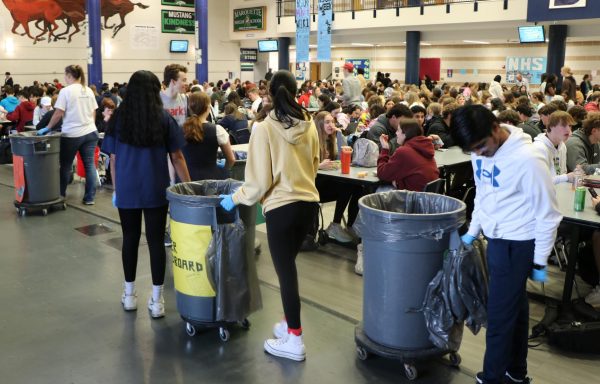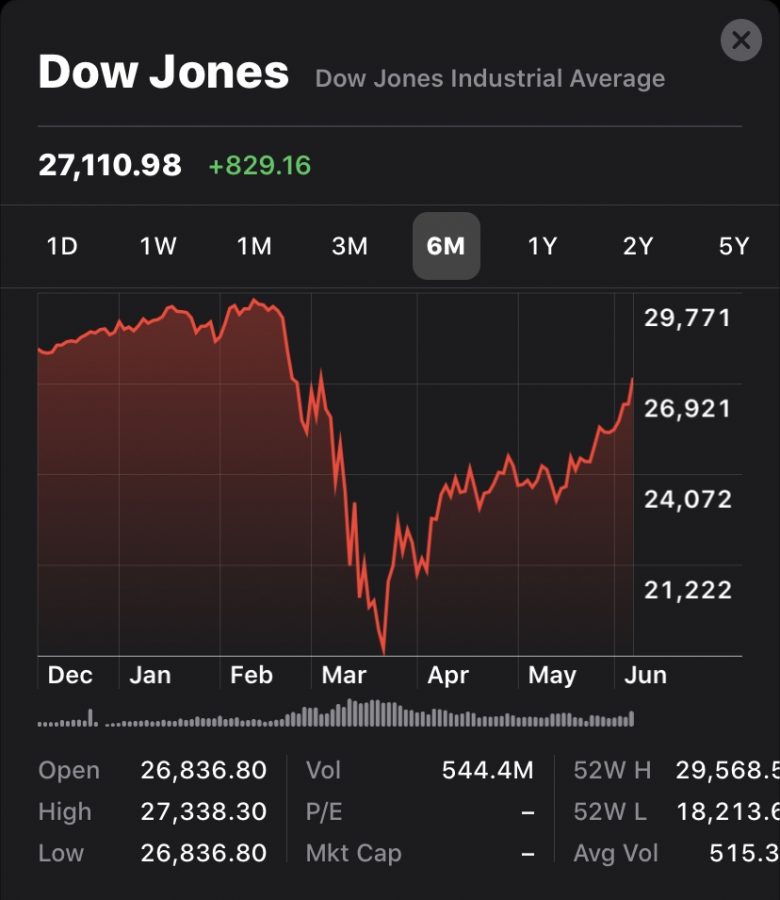COVID-19 Causes Significant Crash in Stock Market
Media by Arpitha Sistla
The Dow Jones Industrial Average plummeted in March due to the signifcant strain the COVID-19 pandemic has put on the economy.
Around mid-late February junior Aaron Alter, president of the Stock Club, pulled out of a large number of his shares in the stock market in fear of what was going to happen. Global economies, such as China and Italy were crumbling, and he feared that the United States was going to be next.
He was right. The Covid-19 pandemic wiped $3.18 trillion in market value from U.S. stocks that week, according to estimates from S&P Dow Jones Indices. In addition to the overall crash, the Dow Jones Industrial Average lost 3,500 points, according to CNBC.
“It was a bit unorthodox,” Alter said. “We’ve never really had a pandemic wipe out the stock market. It’s usually been due to monetary reasons.”
But Alter was able to pull out ahead of time and invest in companies such as Zoom Video Communications and Chegg, which both specialize in online learning and have been exhibiting high profit, Alter said. And due to Alter’s preemptive change, his portfolio is now at an all time high.
Meanwhile, others seek to gain benefit from how much cheaper the shares are as a whole. Crystal Strate, FBLA adviser and AMPED teacher, is one of those people.
“My initial reaction to what was happening was opportunity,” Strate said. “My husband and I discussed the events and considered investing further into several accounts. We kind of looked at it like a ‘sale’.”
Although Strate’s retirement accounts were slightly damaged and her son’s 529 (college) account also was affected, she is fairly confident the market will rebound in the future and see increased returns.
She said that, overall, the stock market still goes up even after other historical impacting events (such as 9/11 and the 2008 Recession). Strate and her husband simply see it as another event that they can bounce back from.
But perhaps one of the biggest impacts of the stocks crashing was the damage to the 401k retirement account.
But Kris Caldwell, a financial advisor from Edward Jones, said that, in the long term, there is going to be a 20 percent decline in portfolio value with the probability of being able to provide till the age of 90.
She said for those preparing for retirement, the best option is to start conservative, build a cushion for inflation, and most importantly, to be flexible.
Your donation will support the student journalists of Marquette High School. Your contribution will allow us to purchase equipment and cover our annual website hosting costs. You may become a PATRON by making a donation at one of these levels: White/$30, Green/$50, Blue/$100. Patron names will be published in the print newsmagazine, on the website and once per quarter on our social media accounts.

Arpitha Sistla (she/her), senior, is a Co-Online Editor in Chief for the Messenger. This will be her 3rd year on staff. Outside of the Messenger, she is...







